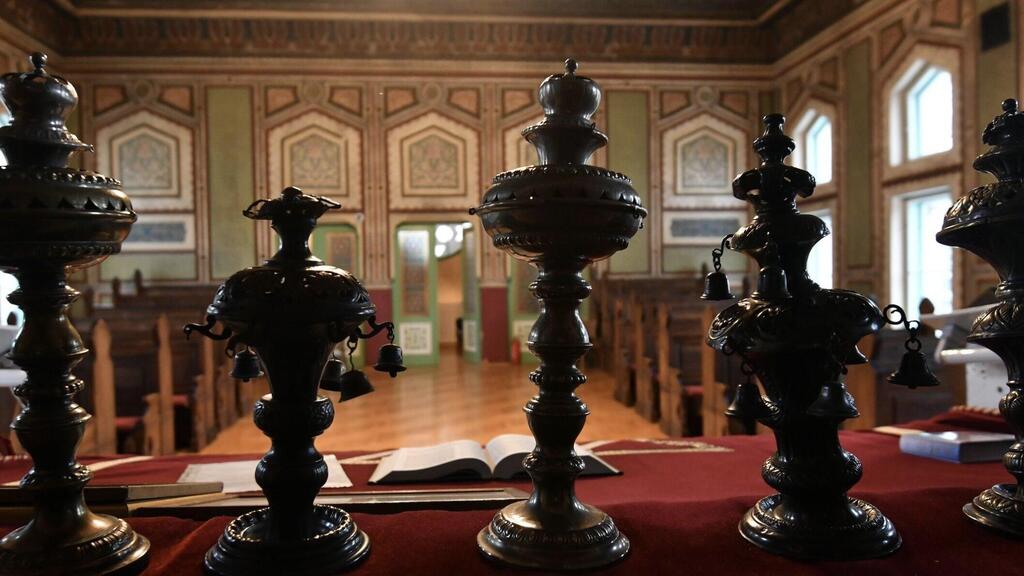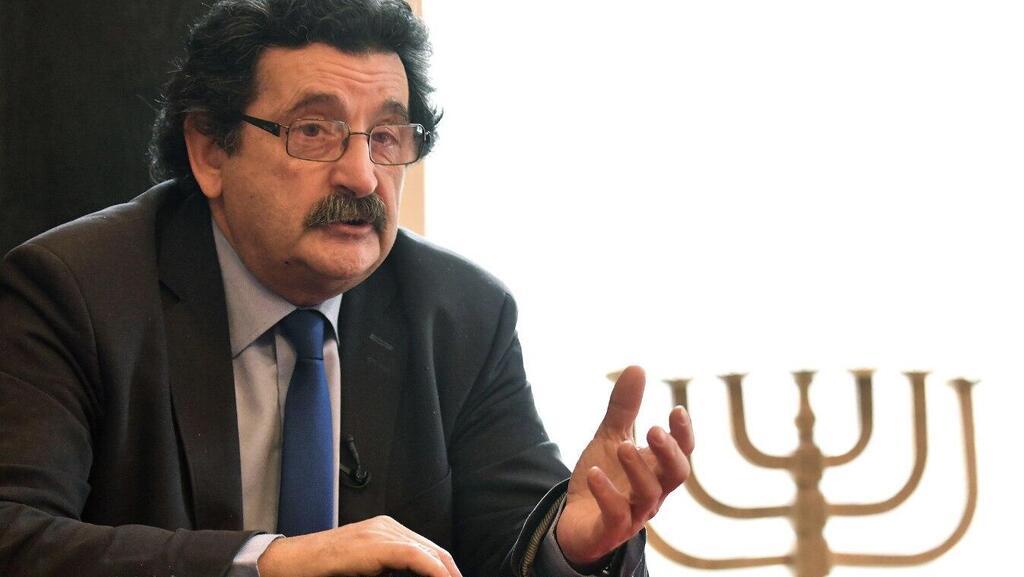As their numbers dwindle, Bosnia’s Jewish community is creating an archive of Balkan Jewish history, including documents, photographs, artifacts and genealogies to preserve the Bosnian Jewish story.
The Jewish Community of Bosnia Herzegovina group acquired a 7,500 square foot space in downtown Sarajevo in the fall, with the hopes of turning the eventual archive into a museum.
2 View gallery


A view inside the Jewish community center in Sarajevo in 2018
(Photo: Elvis Barukcic/AFP via Getty Images)
Eli Tauber, 72, who has written several books on Bosnian Jewish culture and history, is leading the project.
“Our idea is to write the history of the Jewish people in Bosnia and Herzegovina,” Tauber told the Jewish Telegraphic Agency. “But this is not so easy, we are talking about 500 years of history and not just history but people, families and the destinies of all those people across 500 years.”
Today, at most 900 Jews live in Bosnia and Herzegovina, around 500 in the capital Sarajevo. But before the Holocaust, Sarajevo was about 20% Jewish and known lovingly as “little Jerusalem” for its variety of synagogues, mosques and churches — both Catholic and Orthodox — all in close proximity.
Sephardic Jews first arrived in the region during the time of the Ottoman Empire, after fleeing the Spanish Inquisition. Ashkenazi Jews followed suit when the area fell under Austro-Hungarian rule in the 1870s.
The Holocaust, which in western Yugoslavia was implemented by Ustaše — a brutal Nazi puppet regime — decimated Bosnia’s Jewish community. Less than 40 years later, the Bosnian War, another genocidal conflict that broke out during the dissolution of Yugoslavia in the 1990s, caused many of those who remained to emigrate to Israel and beyond.
Tauber has been criss-crossing the Balkans for the project, working with state archives and meeting with descendants of Bosnian Jews in cities from Belgrade to Vienna to Budapest.
“I just returned from Belgrade a few months ago with 7,000 scans,” he told JTA on a recent call.
He said he hopes the archive — which is still at least two years away from completion — will help reconnect all those who left to the country they or their ancestors had come from.
“What is important is that at the end we will establish some computer program with family trees, for all those people who have their roots in Bosnia, and find all that they did,” Tauber said.


